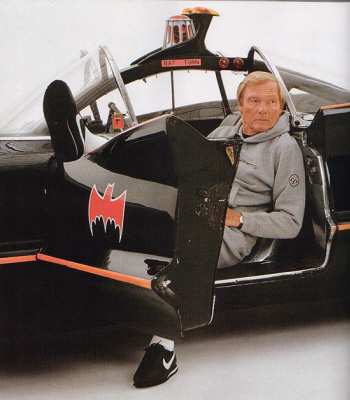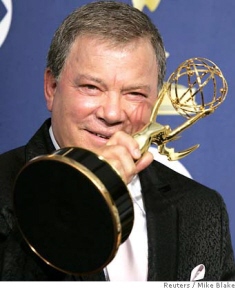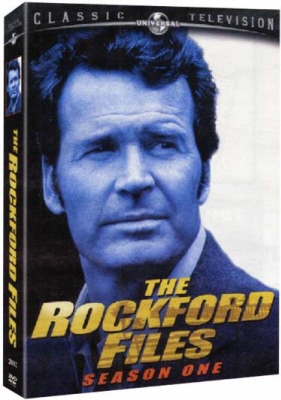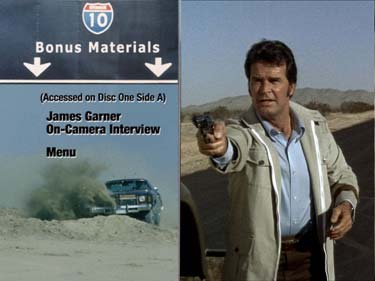Now Playing: SCTV
I've been watching more SCTV lately, since Shout! Factory has released their fourth volume of episodes. This box offers shows that aired on NBC's late Friday night schedule from November 1982 to March 1983. Dave Thomas, Rick Moranis and Catherine O'Hara had left the show by this point, and their absence is sorely missed on these episodes, even though Martin Short had been added to the cast to pick up some slack. There were still some good shows this season, but SCTV was not as consistently good as it was in their pre-Short 90-minute episodes (not that Short is to blame).
I say this, even while admitting that the season's first episode is one of the show's best. The premise is that a strike of SCTV technicians has spurred owner Guy Caballero (Joe Flaherty) to simulcast programming from the CBC--the Canadian Broadcasting Company. Flaherty and Short wrote much of the material for this episode, which brilliantly and painstakingly parodies typical Canadian TV shows, such as HINTERLAND WHO'S WHO, a series of 60-second wildlife films, HEADLINE CHALLENGE, a very dull and slow-moving panel quiz show, and an amazing spin on GOIN' DOWN THE ROAD, a low-budget 1970 Canadian film hardly known in the U.S., but a major critical and cultural smash in its homeland. This episode's writing is so strong that it isn't necessary to be familiar with the shows being spoofed, just so long as you get the premise that A) Canadian television is boring, B) there are few major Canadian TV stars, and C) Canadians suffer from low self-esteem when compared to their American neighbors.
Another episode I recently saw guest-starred Robin Williams in a clever movie parody called THE BOWERY BOYS IN THE BAND, which puts Slip (Williams as Leo Gorcey), Sach (Short as Huntz Hall), Whitey (John Candy as Billy Benedict) and Louie (Flaherty as Bernard Gorcey) into the middle of William Friedkin's gay-themed THE BOYS IN THE BAND. Something I wondered about this and other SCTV episodes is how well their humor has aged. Meaning that, as funny as THE BOWERY BOYS IN THE BAND is, it's surely incomprehensible to anyone who doesn't know who the Bowery Boys are or what THE BOYS IN THE BAND is, which is, of course, nearly everybody under the age of 30.
I never saw a Bowery Boys movie until just a few years ago. I remember seeing countless listings in TV Guide when I was a kid for Bowery Boys movies airing on WGN-TV in Chicago. Unfortunately, I lived in a town that was so small that it didn't get cable television until I was well into high school. And I don't recall WGN still running the Bowery Boys after that, or else I probably would have seen them. Aside from some public domain titles with Bela Lugosi that have appeared, I don't think any of their work is on DVD, except perhaps for some of their early 1930's A-pictures when they were called the East Side Kids. But I'm talking about the Monogram programmers the Boys churned out four or five times a year. Every once in awhile, Turner Classic Movies airs some, but it's pretty rare.
I know Cheeseburger has already tuned out by now. Anytime I talk about a movie or TV show more than five years old, she stops reading. That's right--I'm calling you out, Cheeseburger.
I also started watching one of my few recent DVD purchases: THE DICK CAVETT SHOW: ROCK ICONS. August 18, 1969 would appear to be an historic date in television history. That's the night Jefferson Airplane performed "We Can Be Together" and uttered the word "motherfucker" on network television, probably the first time that had ever happened. The occasion was Woodstock, and the Airplane, Stephen Stills and David Crosby flew directly from the Woodstock stage to New York City to go on Cavett's late-night ABC talk show, which was competing with THE MERV GRIFFIN SHOW for #2 in the timeslot behind THE TONIGHT SHOW STARRING JOHNNY CARSON. Joni Mitchell, who famously did not appear at Woodstock specifically so she would be fresh for her Cavett appearance, sang four songs that night, Stills did one, and Jefferson Airplane three.
Shout! Factory has done a nice job with the episodes I've seen so far. What they have done is cherry-picked episodes in which famous rock stars performed, but instead of just editing together clips, they have elected to air the complete 90-minute episodes, so we can judge the performances in their proper context. This allows us to more fully absorb the history and the setting, and Cavett's unusual interviewing format, in which all the guests sat together in a semi-circle so everyone could participate, allowed, say, Sly Stone and tennis great Pancho Gonzalez to chat.
Speaking of Sly Stone, his appearance on this DVD set is interesting because he was so coked out at the time. Sly and the Family Stone do a kickass version of "Thank You (Falettin Me Be Mice Elf Again)", but Sly's chat with Cavett is nigh incomprehensible. He comes off as friendly, polite and even intelligent, but it's obvious that his well-publicized drug problem was in full swing.
The third episode I have watched so far came near the end of Cavett's ABC run, after the network cut him back to one week per month under its WIDE WORLD OF ENTERTAINMENT umbrella. His shows were just a half-hour, which barely gave David Bowie, in a very rare TV appearance, time to sing two songs ("1984" and "Young Americans") and chat with Dick. I'm not a Bowie fan, but he was on fire that night, and his talk with Cavett--the first time many of his fans had ever seen him in conversation--is delightful.
Cavett has had several TV shows, including one in the 1990s on CNBC. The 1969-74 late-night show contained here is probably his best. What's interesting about watching them now is how unhip he was and how comfortable the rock stars seem to be with him. Cavett was not a fan of rock and roll, and, in fact, didn't even know who Jefferson Airplane was. But unlike many other interviewers, he doesn't condescend to them, and doesn't ask a bunch of stupid questions. I believe he was genuinely curious about them, even if he does occasionally fall back on stock questions ("What do your parents do for a living?").
THE DICK CAVETT SHOW is a neat artifact from a period in television when people actually came on talk shows to talk. In the three shows I watched, not one guest was there to plug a movie, a show, an album or anything else. If it came out naturally that Bowie was on tour or that Debbie Reynolds was doing a stage show, fine, but that was just part of the conversation. Senator Fred Harris from Oklahoma, who later unsuccessfully ran for the Democratic Presidential nomination in 1976, came on with his wife, a Comanche, to talk about current events and Native American rights. When's the last time a little-known politician appeared with Dave, Jay or Conan to talk about issues?
It's also fun to see these shows with the benefit of hindsight. When Jefferson Airplane did "We Can Be Together" and "Volunteers", no one in the audience had heard them because the album hadn't been released yet. So while we know the songs well (and both kick major ass), it was new music to everyone in the studio and at home, and it's fun to eavesdrop on that sense of discovery.
Janis Joplin appeared in three episodes that are on the second disc in the box set, and George Harrison, Paul Simon and a 20-year-old Stevie Wonder are on Disc Three. Should be fun.

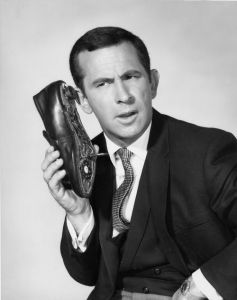
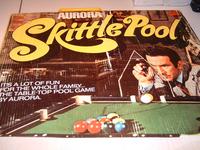 I actually came to know Adams through his voicing of Tennessee Tuxedo, a wisecracking penguin who teamed up with a dumb walrus named Chumbley on a popular cartoon series I watched a lot as a kid. He also appeared on the box and in commercials for an Aurora toy called Skittle Pool; I understand Adams won a Clio for directing the commercial.
I actually came to know Adams through his voicing of Tennessee Tuxedo, a wisecracking penguin who teamed up with a dumb walrus named Chumbley on a popular cartoon series I watched a lot as a kid. He also appeared on the box and in commercials for an Aurora toy called Skittle Pool; I understand Adams won a Clio for directing the commercial.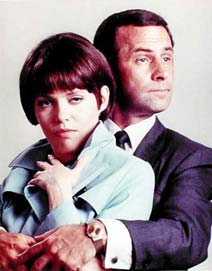 Catchphrases like "Would you believe...?", "Missed by that much" and "Sorry about that, Chief" became widely imitated, and running gags like the Cone of Silence and other wild gadgetry were hallmarks of the series. But most of all, GET SMART! was successful because of its star. Adams never really did much after GET SMART! went off the air, perhaps because of typecasting. He was certainly a very talented comic actor, a master of the double take and able to wring every last laugh out of a gag by punctuating the lines with that distinctive Maxwell Smart voice (which was not how Adams regularly talked, by the way).
Catchphrases like "Would you believe...?", "Missed by that much" and "Sorry about that, Chief" became widely imitated, and running gags like the Cone of Silence and other wild gadgetry were hallmarks of the series. But most of all, GET SMART! was successful because of its star. Adams never really did much after GET SMART! went off the air, perhaps because of typecasting. He was certainly a very talented comic actor, a master of the double take and able to wring every last laugh out of a gag by punctuating the lines with that distinctive Maxwell Smart voice (which was not how Adams regularly talked, by the way).